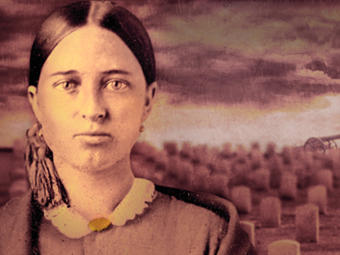
Section Branding
Header Content
Death and the Civil War
Primary Content

Death and the Civil War, the new American Experience documentary that airs tonight at 8 p.m., covers the conflict from a more gruesome perspective: death. Dealing with war and death is difficult. This documentary does not sugarcoat the topic. It chronicles the extensive amount of casualties the war claimed, how veterans were treated and mistreated and how death affected those left behind.
In many of the accounts, relatives never learned the fate of their family members who died in battle. Some were lucky enough to get a dying soldier’s letter or diary years later.
Casualties and body parts were often left stacked on the battlefield, unburied or identified. The government was just unprepared for this large scale carnage.
These insights are what may prove interesting to middle school kids once they get to the chapter on the Civil War in their mandated Georgia studies. Given how far removed we are from the 19th century, for them the civil war is an event that might as well have happened in a galaxy far far away.
The current wars in Iraq and Afghanistan are what they know. Many of them have parents, siblings, relatives or neighbors who have died in those wars.
As horrifying as the stories in Death and the Civil War are, students may be more apt to discuss them. How about using this documentary to open up discussions on how the U.S. has dealt with war dead in the past versus modern times? Also what recommendations would they give to Congress and the President on how to help military families? By the way, the series has a teacher's guide you can use.
Another interesting connection - yesterday marked the unsettling 150th anniversary of the Civil War Battle of Antietam, near Sharpsburg. Nearly 24,000 men were reported killed in the battle. But it changed the nature of the war. I recommend that you have your students listen to this feature on NPR about the battle and talk about what that major change was.
Georgia Stories also has this story on the Andersonville Prison.
Watch Death and the Civil War Extended Promo on PBS. See more from American Experience.
Secondary Content
Bottom Content





